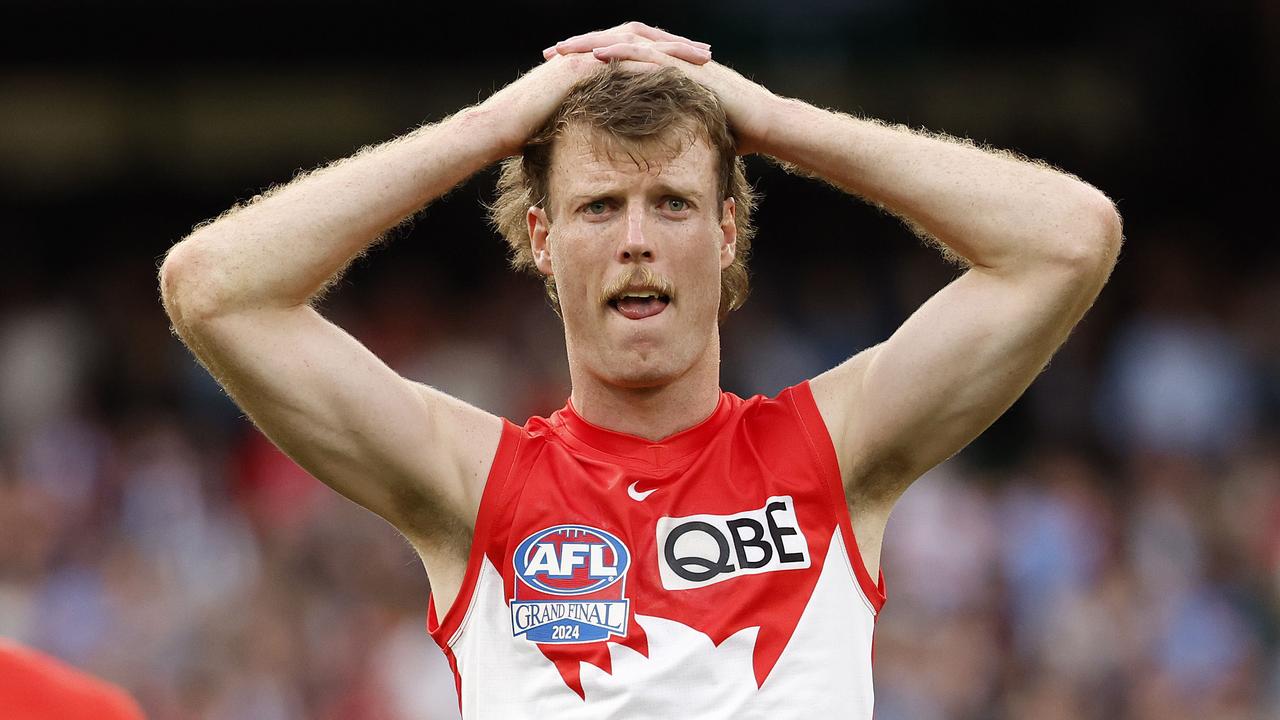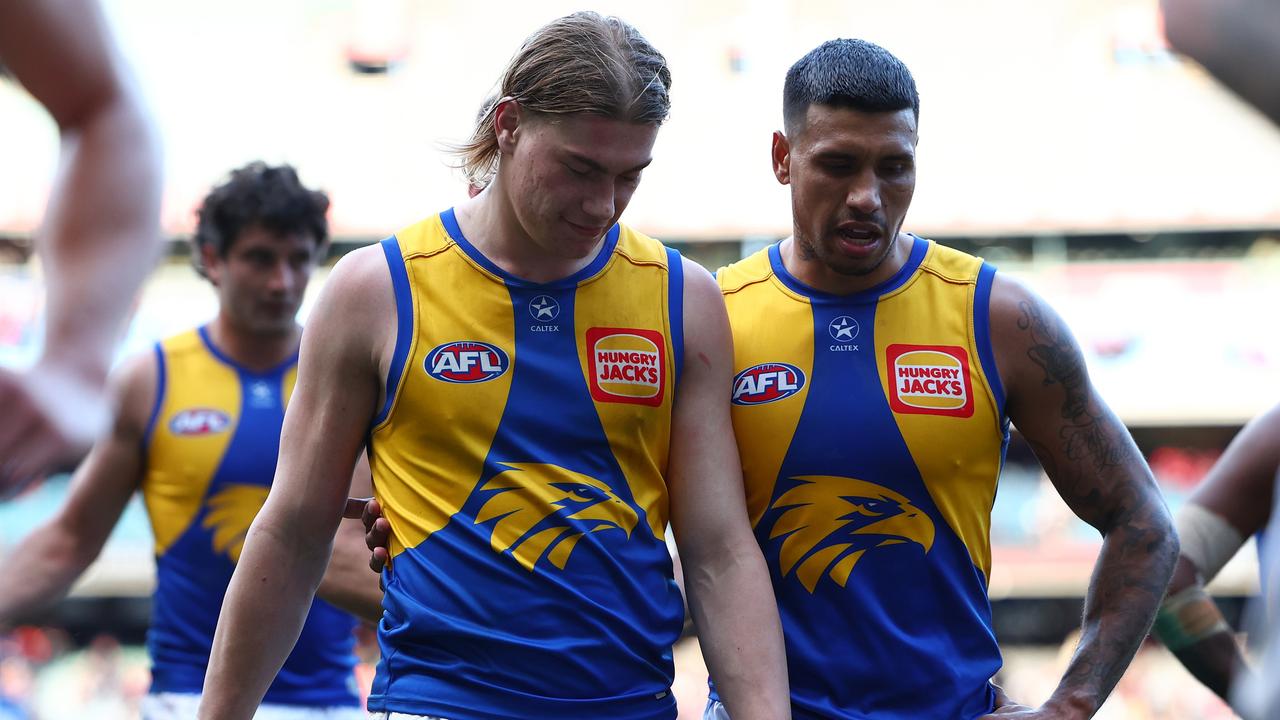‘Disturbing’: Warning as demand for family violence support services surges by up to 40 per cent across AFL and NRL grand final matches
Experts have issued a warning to Australians over the AFL and NRL grand final weekends amid a “disturbing” trend.

AFL
Don't miss out on the headlines from AFL. Followed categories will be added to My News.
Specialist family violence services reported increased demand of up to 40 per cent across the AFL and NRL grand finals last year, as experts warn support services could be “under the pump” heading into grand final season.
Victorian family violence service Berry Street reported an increased demand of between 30 and 40 per cent over the AFL and NRL Grand Final weekend last year.
Berry Street executive director Heidi Reid said the “marked increase” continued in the days following the grand finals, as well as during other major sporting events including the Melbourne Cup.
“It’s not that there’s no violence occurring and then there’s a grand final and all of a sudden there’s violence,” Ms Reid said.
“It’s about really escalating the violence that is already occurring.”
A study by La Trobe University found domestic assaults increased by more than 40 per cent across State of Origin games in NSW, and that reports also increased during other major sporting events including the AFL Grand Final.
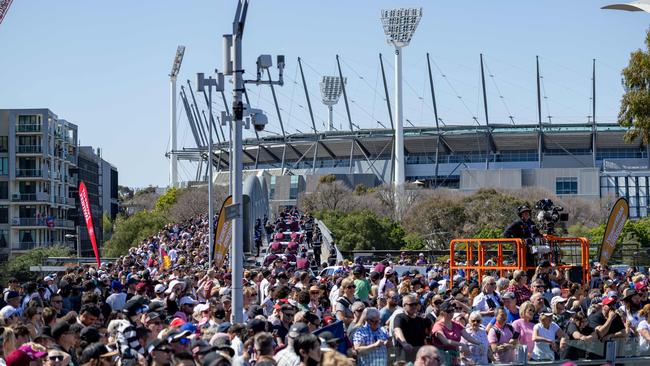
With the AFL Grand Final just days away, La Trobe Rural Health School associate dean Dr Kirsty Forsdike warned support services could be “under the pump” over the next two weeks.
“Services are actually going to potentially be under the pump for many days — it’s not necessarily just going to happen on the day of the event itself,” Dr Forsdike said, noting this doesn’t necessarily just mean police.
“We’re talking primary health care practitioners, family violence services, helplines … So it’s being aware that there is this problem coming up.”
A Victoria Police spokesperson confirmed police “see a rise in family violence reports coinciding with major sporting events, as well as public holidays”.
“We know that major sporting events have the potential to create a number of stressors on relationships that may increase the possibility of family violence,” the spokesperson said.
“These events provide opportunities for families, including people in families that don’t often see each other, to get together. This can mean increased contact, and more opportunities for stress and conflict.”
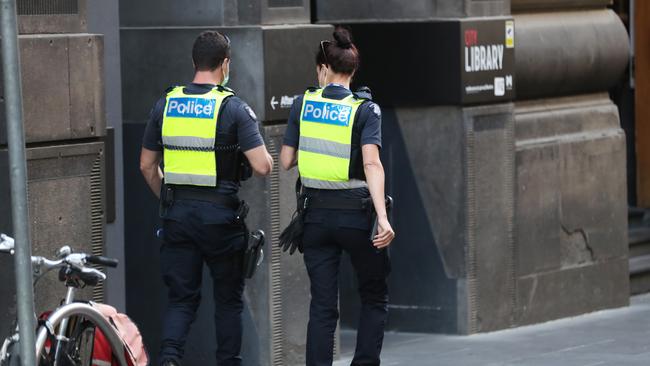
The spokesperson said an increased likelihood of alcohol consumption across the major sporting events may have an impact on the increase in family violence reports.
“It is important to stress there is never an excuse for family violence,” the spokesperson said.
“It can occur any time and affect anyone.”
The spokesperson said police are “well resourced to respond and support victim-survivors and hold perpetrators to account”, urging those experiencing family violence to seek help from police or support services.
Minister for Social Services, Amanda Rishworth said family, domestic and sexual violence destroys lives and one life lost was one too many.
“It must end,” she said.
“Since the day we were elected, our Government has made the safety of women and children experiencing family, domestic and sexual violence a national priority.
“Our Government has already invested more than $3.4 billion into women’s safety, guided by the National Plan.”
NSW Police declined to comment.
LOOK FOR THE SIGNS
Ms Reid agreed gambling and alcohol “definitely play a role” as they can create “really volatile environments” by “reducing the inhibitions of individuals”.
She urged people to look out for changes in behaviour, with coercive control just one factor in domestic assault.
“Be looking for signs that someone isn’t okay, that someone perhaps doesn’t feel safe, that someone’s acting differently to normal, that perhaps someone is trying to control the behaviour of someone else,” she said.
“It’s not just about the physical response, coercive control is really about someone trying to control someone else, to humiliate them, to shame them in some way. So those are the sorts of things we should be looking for.”
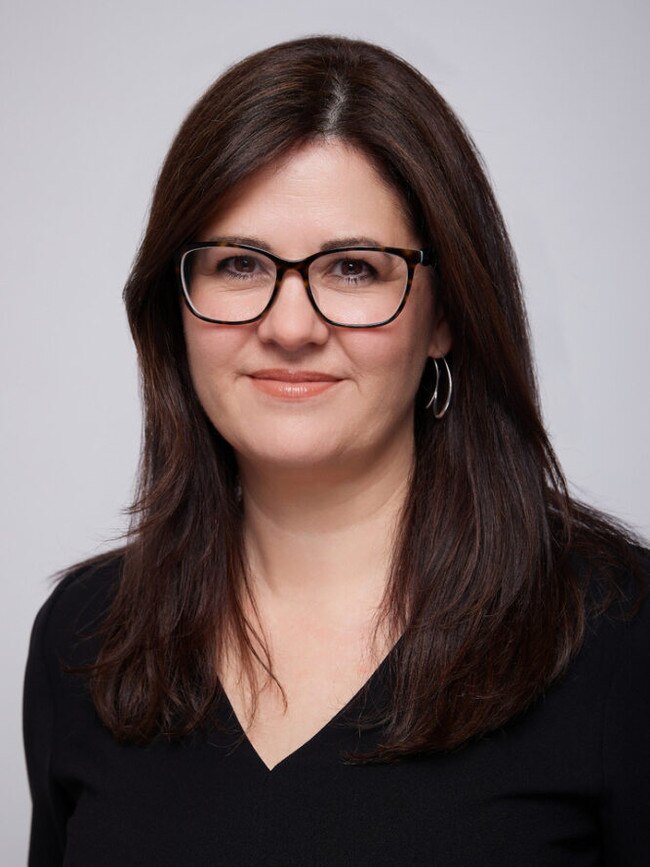

Ms Reid also said asking women who may be impacted by violence questions in a “non-judgemental way” is key.
She said often family and domestic violence remains hidden until it “gets to the extreme level”, noting that while the 60 women killed to predominantly male violence this year (according to Sherele Moody’s Femicide Watch) is deeply concerning, there are also many women experiencing non-fatal violence.
“We see an increase in women being really seriously injured, and women even suffering CTE,” she said.
“Talking amongst colleagues in the sector, we are concerned not only about the escalating rates of family violence in terms of the deaths we see … but we see that there are increasing numbers of women coming forward with very serious, life threatening and life altering injuries as well.”
‘NO ONE ELSE IS TO BLAME FOR YOUR BEHAVIOUR’
No To Violence chief executive officer Phillip Ripper said the spike in calls to emergency services around the major sporting events is “disturbing”, issuing a stark message to men that “no one else is to blame” for their behaviour.
“What we say to men is plan your night, plan your weekend, limit your use of alcohol or other drugs if you have a history of violence or aggression or associated with sporting events and alcohol,” Mr Ripper said.
“Find somewhere safe to do that where your behaviour won’t impact on family members, and remember your choices are always your choices: no one else is to blame for your behaviour.
“If you are concerned about your behaviour, or the impact you might have on your partner or your children, get help now. Pick up the phone, contact the men's referral service (1300 766 491) and talk to a trained counsellor who can provide you with strategies to help you manage your behaviour and to choose better options.”
Mr Ripper said calls to the men’s referral service spike in the days following major sporting events after men have “reflected on their behaviour”.
He explained the referral service will first ensure that the man’s family and children are safe before “supporting him in his journey of change and providing some immediate counselling”.
“The number of men calling us continues to grow year on year as more men become more aware of the impact of their behaviour on their families and as more men seek a better life for themselves and their families,” Mr Ripper said.
Originally published as ‘Disturbing’: Warning as demand for family violence support services surges by up to 40 per cent across AFL and NRL grand final matches



